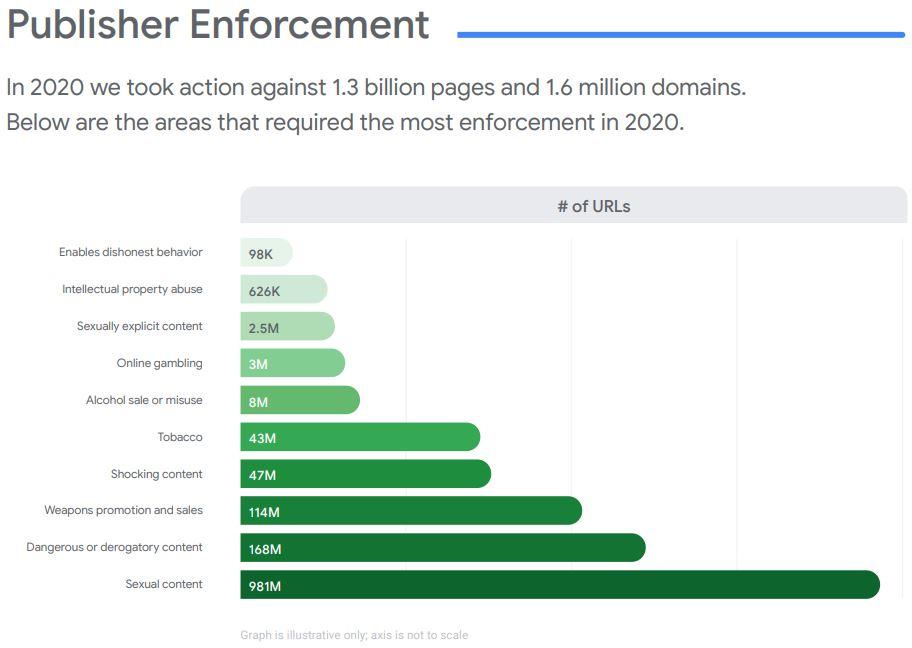
More than 3 billion ads blocked by Google last year for violating policies
share on
Google blocked or removed approximately 3.1 billion ads last year for violating its policies and restricted an additional 6.4 billion ads. About 867 million ads were either blocked or removed for abusing the ad network, while 91 million were removed as they violated legal requirements. It also blocked over 99 million COVID-19 related ads from serving throughout the year. This included ads for miracle cures, N95 masks due to supply shortages, and most recently, fake vaccine doses.
Google's VP, ads privacy and safety Scott Spencer explained in a blog post that restricting ads allows it to tailor its approach based on geography, local laws and its certification programmes, so that approved ads only show where appropriate, regulated and legal.

As the number of COVID-19 cases rose worldwide last January, Google also enforced its sensitive events policy to prevent behaviour such as price-gouging on in-demand products (hand sanitiser, masks and paper goods), or ads promoting false cures. According to Spencer, it also evolved its enforcement strategy to start allowing medical providers, health organisations, local governments and trusted businesses to surface critical updates and authoritative content, while still preventing "opportunistic abuse". Additionally, Google also clamped down on claims and conspiracies about COVID-19 by prohibiting both ads and monetised content about the pandemic or other global health emergencies that contradict scientific consensus.
At the same time, Google has also invested in automated detection technology to scan the web for publisher policy compliance at scale. "Due to this investment, along with several new policies, we vastly increased our enforcement and removed ads from 1.3 billion publisher pages in 2020, up from 21 million in 2019. We also stopped ads from serving on over 1.6 million publisher sites with pervasive or egregious violations," Spencer explained.
Google removed 981 million ads containing sexual content and 168 million ads which had dangerous or derogatory content. Meanwhile, it also had to remove ads on publishers' sites related to tobacco (43 million) and alcohol sale or misuse (8 million).

Google also tackled fraud in 2020 through multiple new policies and programmes, including its advertiser identity verification programme and business operations verification programme. Spencer explained that individuals have used cloaking to hide from Google's detection, promote non-existent virtual businesses, or run ads for phone-based scams.
As a result of the initiatives implemented to clamp down on fraud, Google disabled more than 1.7 million ad accounts for policy violations. It also blocked or removed over 867 million ads for attempting to evade its detection systems, including cloaking, and an additional 101 million ads for violating Google's misrepresentation policies.
MARKETING-INTERACTIVE's Content 360 Week is back from 6 to 8 April this year! Super charge your content production, distribution and monetisation strategies by learning from brands such as NBA Asia, P&G, Malaysia Airlines, and Marriott International, among others. Sign up today!
Photo courtesy: 123RF
Related articles:
Analysis: Google’s privacy promise is great for consumers, but what about SMEs?
Analysis: Will Google's FLoC proposal be yet another walled garden?
Google to scrap third-party cookies: Will it crumble parts of the digital ad world?
Build a data reservoir: Regional marketers on Google cutting third-party cookies
Are you truly prepared for the cookie-less world?
share on
Free newsletter
Get the daily lowdown on Asia's top marketing stories.
We break down the big and messy topics of the day so you're updated on the most important developments in Asia's marketing development – for free.
subscribe now open in new window
